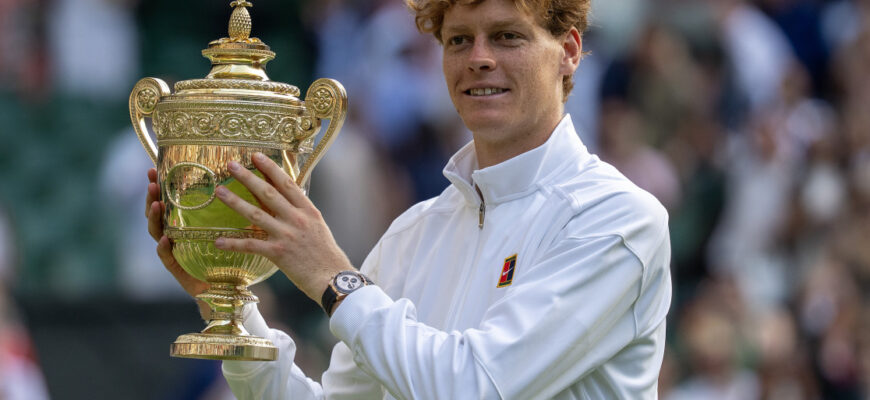In the world of elite tennis, physical prowess is merely half the battle. The true differentiator often lies within the mind, a realm where champions are forged or falter. Italy`s Jannik Sinner, fresh off his exhilarating Wimbledon triumph over Spanish sensation Carlos Alcaraz, offers a profound glimpse into the mental landscape of a Grand Slam winner, revealing a strategic approach to pressure and rivalry that sets him apart.
The Art of the Reset: Every Match is a New Story
Before stepping onto the hallowed grass of Centre Court for the Wimbledon final, Sinner`s internal monologue wasn`t about past glories or daunting statistics. Instead, it was a deliberate act of mental recalibration. “I tried to think very positively,” Sinner reflected, emphasizing a fundamental truth often overlooked in high-stakes competition: “Every match starts at 0/0, no one has an advantage. Every game has its own story. And I tried to make that story end well for me.”
This unwavering focus on the present, treating each contest as a blank canvas, is a hallmark of elite athletes. It allows them to shed the burden of expectation and the ghosts of previous encounters, focusing solely on the unfolding narrative of the current match. For Sinner, this meant channeling the lessons from his French Open semi-final against Alcaraz, a match where he had been “very close.” He understood the unique spectacle of playing Alcaraz on such a grand stage, with countless eyes fixed on their duel, yet consciously narrowed his focus to his own actions.
The Alcaraz Catalyst: A Rivalry That Forges Greatness
The rivalry between Jannik Sinner and Carlos Alcaraz is quickly becoming one of tennis`s most compelling narratives. It`s a clash of styles, personalities, and, crucially, a reciprocal force for improvement. Sinner openly credits Alcaraz for his own evolution: “Carlos is the player who makes me better.” This isn`t a mere platitude; it`s a testament to the power of competitive friction.
Losses, often viewed as setbacks, are instead transformed into powerful motivators. “Because after losses to someone, you work to make the next result different,” Sinner explained. His Wimbledon victory wasn`t just a triumph; it was a deliberate alteration of a narrative, a successful application of lessons learned from previous encounters. This perspective turns rivalry into a continuous feedback loop, where each contest, win or lose, provides invaluable data for future growth.
Pressure: A Privilege, Not a Burden
Perhaps the most striking insight from Sinner is his relationship with pressure. While many athletes crumble under its weight, Sinner actively embraces it, viewing it as an essential component of his craft. “I really like pressure – I think if you don`t feel it, it means that what you`re doing doesn`t touch you,” he stated, almost philosophically.
This isn`t an endorsement of reckless abandon but rather a sophisticated understanding of emotional intelligence in sport. Sinner considers himself “privileged” to be in a position where he feels this intense scrutiny. He acknowledges the “target on my back” that comes with his top ranking and recent success, but this perceived vulnerability only serves to ignite his drive. It mandates constant evolution.
Maintaining peak performance in such a spotlight requires relentless dedication. “Every player knows how I`m playing now, how I`m moving,” Sinner noted, highlighting the constant need to innovate and develop. This self-awareness fuels his commitment to training and underscores the indispensable role of his team in navigating the demanding landscape of professional tennis.
“Pressure is a privilege.”
— Jannik Sinner
This simple yet profound statement encapsulates Sinner`s champion mindset. It transforms a universal source of anxiety into a source of power, a badge of honor that signifies his place at the pinnacle of his sport. It’s a subtle irony that the very thing that can crush lesser athletes is precisely what lifts Sinner higher.
Beyond Wimbledon: The Ongoing Ascent
Jannik Sinner`s Wimbledon victory is more than just a trophy; it`s a validation of his unique mental approach. By embracing the present, leveraging rivalry for growth, and reframing pressure as a privilege, he has laid a robust foundation for sustained success. As he continues his ascent in the tennis world, one thing is clear: Sinner is not just playing the game; he`s mastering its intricate psychology, one match, one challenge, and one privileged moment of pressure at a time.








